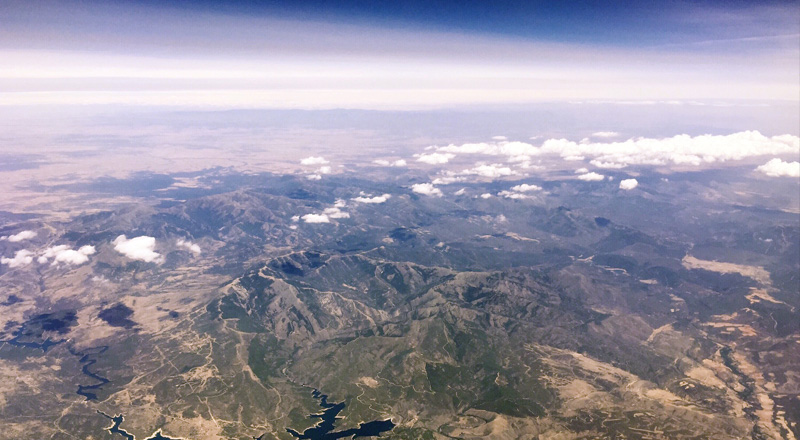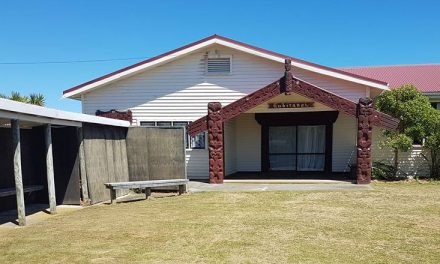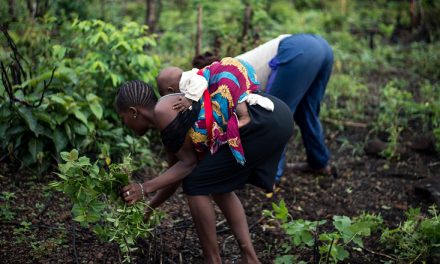30000FT VIEW
Tena tātou katoa e te iwi mīhana… (Greetings to all the people in mission),
The whakataukī (Māori proverb) for this post is: “Tukua te wairua kia rere ki nga taumata.” [Lit. “Send/release the spirit to fly/ascend to the topmost summits”]. It is commonly translated as “allow one’s spirit to exercise its potential”. It is the first line of a common karakia timatanga, the opening prayer for the day or an event.
The concept of soaring or ascending is common to most cultures, no less so Māori. There is something majestic and calming about a “bird’s eye view”. In Isaiah 40:28b-31, the prophet speaks of God elevating those who trust/hope/wait on the Lord, with great strength, fortitude and perseverance through (or above) the turmoil and trial. In verse 31, the word translated “eagle” in English Bibles is nesher, which is now understood to refer to the Griffon Vulture. This “king of birds” is monogamous and lovingly parental, lives in large groups (‘venues’), works together to find food (circling as a ‘kettle’), has a wingspan of up to 3 meters wide, clocks in at 75km/h in full flight, rides the thermal currents to over 30,000ft, and can spy a 3ft carcass from 4 miles away—which they hygienically clean up.
Management of the mess of missions isn’t our responsibility.
Early in my appointment as leader of Missions Interlink I was asked if the job was like trying to herd cats. In one of those split second moments that seemed to last a while, I saw the YouTube advert involving cowboys wrangling cats. But, like the nesher lifting off, I imagined zooming out above the scene and soaring high over the cat chaos to find it formed a graceful choreography—similar to what you see in the eye-in-the-sky view of stadium dance routines. In that instant I sensed the Spirit of God say, “I don’t need you to herd anything”. Management of the mess of missions isn’t our responsibility, the Spirit of God is choreographing obedient People of God in missions for the purposes of God’s mission. Now, if that doesn’t lift a burden off of a network leader’s shoulders I don’t know what would. My responsibility, what I sense God calling me to, is to take the big-picture, 30,000 foot view of things and discern meaning in the movement for the purposes of God’s mission. Then narrate that meaning back at ground level.
This sense prepared me well for my appointment to lead the WEA Mission Commission from January 1 2020. Since the global pandemic started to wreak havoc, and missions strategies and plans were left in shreds, I have been hovering over as much as I can see that is going on in the world, trying to discern the choreography of the Spirit while a ground level the situation is critical, chaotic, changeable, concerning, destabilising, and uncertain.
To switch to a Scriptural maritime metaphor, in the fluidity of our times we must not forget that we stand on solid ground, not eroded by the flood waters or the isobars that have no regard for social distancing (Matthew 7:24-27). That solid ground is not our doctrine or unwavering convictions, it is not our sense of calling or purpose, it is not our organisational heritage or financial viability, it is our relationship with God in-Christ—and the faith that is born out of our relationship such that we have complete trust in what Jesus said and is saying to us. That is our sure foundation. When He said “let us go to the other side” (Luke 8:22-25), the disciples weren’t rebuked because they feared the wind and waves. They were rebuked because they didn’t trust Jesus’ words. In our situation on the oceans of uncertainty, He still commands the tempest.
We have to trust that God is working out purposes we cannot comprehend right now.
I am not going to pretend to predict what our current crisis has in store for us, but we have to trust that God is working out purposes we cannot comprehend right now. The chaos is a guided choreography. A new thing is emerging as it has at certain junctures throughout human history. The long view of Isaiah 43:18-19 in context promises goodness out of calamity. Paul echoes this hope-filled Biblical conviction in Romans 8:28. Yes, we’re in the storm but even if Jesus appears to be somehow sleeping on a comfy pillow do not think for one second that the Father’s plans are not being worked out. God remains our deliverer.
Leaving the metaphors for a moment, what does this mean for you, your family, fellowship or organisation? How might Jesus have expected the disciples to respond? In my reading, He clearly seemed annoyed that they woke Him! Have you ever imagined Jesus getting upset when beseeching Him to do something? God effectively said the same thing to Moses in Exodus 14:15: “Then the Lord said to Moses, ‘Why are you crying out to me? Tell the people to get moving!’…” Maybe we need to revisit what it means to hold on in faith and keep moving to the other side, whether through the waters (in Moses’ case) or on top of them (in the disciples’ case).
In riding out the storms of life, God’s consistent encouragement throughout Scripture is to wait, trust, hope, and remember. With Jesus asleep, the disciples could have simply held on to the boat in faith as it made its way forward and encouraged one another with recollections of all the amazing things they’d seen Jesus just doing. In Matthew’s telling of this story, the context suggests that Jesus had just been healing many. In what ways has God delivered you in the past? What divine breakthroughs form part of your organisation’s history? Prayerfully reassure yourself with those, and worship. God can be trusted. Our Deliverer is coming. He will get us to the other side.
Missions and missions workers tend to be activistic but COVID-19 has hamstrung many of us. Sure, we can and must pray, but beware, is that merely a substitute for activism—when God has already promised His glory would fill the earth? Let’s rise above with the Spirit as we trust/hope/wait and remember, as we steadfastly trust Jesus the Christ to help us #stayonmission.
Whakapaingia te Atua, to tatou kaiunga ki te ao whanui (May we be blessed as God sends us into the wider world),
Jay






